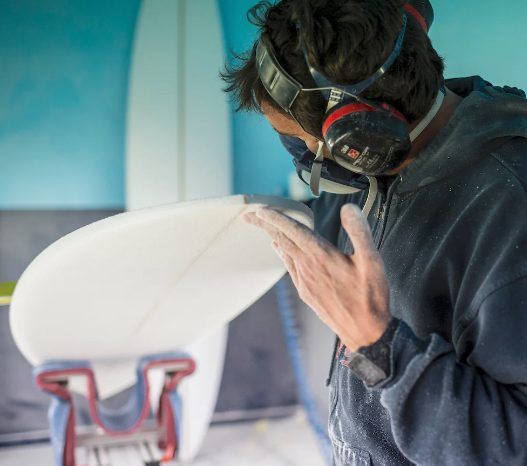
Notox Surfboards – The Future of Sustainable Surfing
Product Information
How Notox Surfboards Work
Notox Surfboards replace traditional, polluting materials with sustainable and recyclable alternatives. Their boards are crafted using:
Organic Flax Fiber – A plant-based alternative to fiberglass that enhances durability while reducing carbon footprint.
Recycled EPS Foam – Provides lightweight buoyancy with significantly less environmental impact than conventional polyurethane foam.
Bio-Based Resins – Derived from renewable plant sources, these resins eliminate the need for petroleum-based epoxies.
Low-Waste Production – Notox reduces waste during manufacturing, recycling over 75% of its production materials.
Key Innovations:
Eco-Friendly Materials – Recycled foam, flax fiber, and bio-resins minimize pollution.
Performance-Oriented Design – Boards are engineered for durability and flexibility, rivaling traditional surfboards.
Sustainable Manufacturing – A clean, energy-efficient production process with reduced waste.
Why Notox is a Game Changer for Surfing
Most surfboards contribute to plastic pollution and ocean waste. Notox offers a greener alternative without sacrificing quality or performance.
Advantages of Notox Surfboards:
Longer-Lasting Boards – More resistant to dings and UV damage than conventional surfboards.
Lighter & Stronger – Natural fiber composites enhance both flexibility and durability.
Reduced Environmental Footprint – Eliminates toxic materials while supporting sustainable practices.
Beyond Surfboards: Expanding Sustainability in Water Sports
Notox is not just about surfboards—they are part of a larger movement to make water sports eco-friendly. Their materials and manufacturing techniques set a precedent for reducing waste in outdoor gear production.
Sustainable Future of Surfing
Supports responsible material sourcing and ethical production.
Encourages surfers to adopt greener alternatives in their lifestyle.
Paves the way for future innovations in sustainable sports equipment.
Challenges & Considerations
While Notox is leading the charge in sustainable surfing, some hurdles remain:
Higher Initial Cost – Eco-friendly materials can be pricier than conventional surfboard components.
Scaling Production – Expanding to a global market requires increased material availability.
Consumer Awareness – Educating surfers about the benefits of sustainable boards is key to industry adoption.


